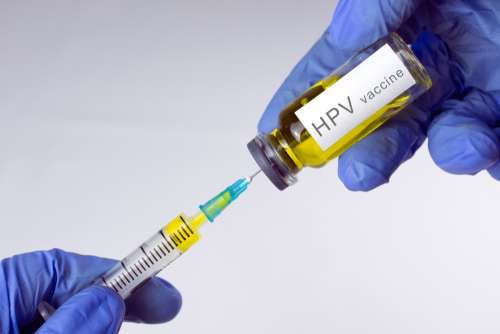HPV Vaccines Can Prevent Cervical Cancer

Cervical cancer is the second most common cancer in women, in India. With over one billion people, India not only has one-sixth of the world’s population, but it also carries one-fourth of the world’s burden of cervical cancer. Cervical cancer is known to occur early in life and strikes at the reproductive period of a woman's life. The incidence rises in 30-34 years age bracket and peaks at 55-65 years, with a median age of 38 years.
The Rise of HPV In India
Human Papillomavirus (HPV) infection is a major risk factor for cervical cancer. Virtually all cases of cervical cancer are caused by HPV, and just two HPV types, 16 and 18, are responsible for about 70% of all cases. More than 40 HPV types can easily spread through direct sexual contact, from the skin and mucous membranes of infected people to the skin and mucous membranes of their partners.
However, over the past few years, the emergence of the HPV vaccine is being seen as one of the best options to prevent cancer.
The HPV vaccine is recommended for young girls aged 9-14 years and 2 doses protect them against HPV infections that cause cervical cancer. 3 doses are recommended to a catch-up vaccination for women from the ages 15 to 26 or immunocompromised individuals.
Australia was the first country to start a government-funded national HPV vaccination programme in April 2007 and it has now been adopted by more than 80 countries. The problem is that even with this evidence on the prevention of cervical cancer, many countries including India have not made it mandatory, like vaccines that prevent polio.
Vaccination to Prevent HPV
Effective HPV vaccine programmes, along with the continued strengthening of simple, evidence-based screening and treatment approaches, could significantly reduce the burden of cervical cancer. Two commercially available vaccines have been shown to be effective against HPV genotypes 16 and 18. The two World Health Organization (WHO) prequalified vaccines are Gardasil®, developed by Merck, and Cervarix™, from GlaxoSmithKline. There is also a nonavalent HPV vaccine (a vaccine that works by stimulating an immune response against nine different antigens) which is effective against nine HPV genotypes.
The Federation of Obstetric and Gynaecological Societies of India recommends cervical cancer vaccines for girls between 9-14 years, with catch up vaccination between 15 to 26 years of age.
The Indian Academy of Paediatrics Committee on Immunisation (IAPCOI) recommends offering HPV vaccine (Category 2 of IAP categorisation of vaccines). Protection is seen only when the vaccine is given before infection with HPV, and therefore should ideally be given prior to sexual debut. The vaccine should preferably be introduced to parents as a cervical cancer-preventing vaccine and not as a vaccine against a sexually transmitted infection.
However, for any vaccination to be successful in a country like India, it needs to be supported and sustained through efforts by the state and union governments.






